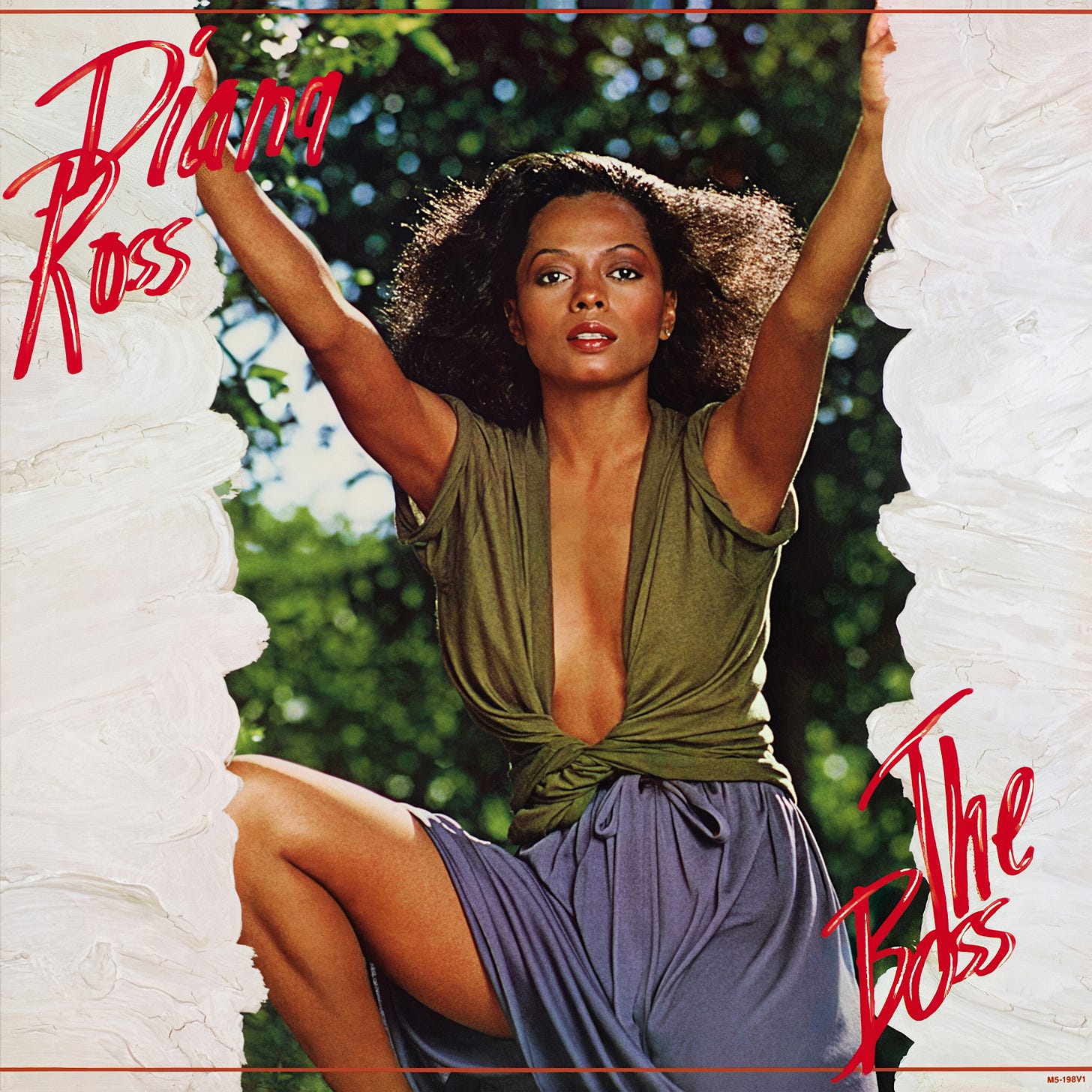Milestones: The Boss by Diana Ross
In her 1979 effort, they don’t call Diana Ross “the boss” for nothing.
Diana Ross could have easily stopped making music and focused on movies or TV shows. This worked well for Cher, another pop star when her music wasn’t doing so well in the ‘70s. But unlike Cher, Ross’ love for music wouldn’t let her just be a TV host. So, she started to think about a new album, soon to be called The Boss, to help her creatively get good reviews and sell more records. It would also find the perfect mix between her usual R&B style and disco.
To make sure this new direction would be a hit, Ross asked Nickolas Ashford and Valerie Simpson for help. Besides being a great R&B duo themselves, the husband-and-wife team were also very talented songwriters and producers. They had worked with Ross before, starting when they were hired to produce The Supremes’ fifteenth album, Love Child.
When Ross went solo, they worked with her on Diana Ross (1970) and Surrender. People often say these are Ross’ best albums because the songs were written just for her. Ashford & Simpson did the same thing for The Boss—they wrote and produced all eight songs on the album that was released to the public on May 23, 1979.
But before this happened, let’s rewind to March 1976 as the Motown Records’ leading diva released “Love Hangover,” a smooth disco track. It was one of three singles from her sixth album, also called Diana Ross, which had come out a month earlier. The song was another success for Ross, and even though she seemed to enjoy its luxurious style, which was created by the late producer Hal Davis, Ross wasn’t the biggest fan of disco, at least not yet.
Disco had taken over clubs and radio in the mid-to-late 1970s, but it didn’t just appear out of nowhere. Fast-paced R&B, which was the heart of disco, had been popular in the previous decade, with Motown Records being one of its main creators. But by 1975, that early disco sound changed into a new, exciting form that forever changed popular music. She was always able to adapt but did change a little bit. But she didn’t completely change herself into a wild dance star. Instead, Ross started to mix her usual soul-pop sound with disco’s brighter tones.
Her albums Baby It’s Me and Ross, which came after Diana Ross, showed this mix of black pop, disco, and classic R&B. The first album, made with the help of producer Richard Perry, found a clever balance between these sounds. The second album wasn’t as good because it was a mix of old and new songs, with the new ones being not as good. Even though the albums were different creatively, they both didn’t sell very well. Now, onto The Boss.
“No One Gets the Prize,” a dramatic dance song full of brass, bass lines, and a little bit of electronic sounds, starts the album off with a bang. Ross’s vocals are strong and powerful on this track. Even though Ashford & Simpson sing backup with their gospel-inspired style throughout the album, it’s Ross who gives one amazing performance after another on The Boss.
She confidently sings a bunch of club-ready songs, with tempos ranging from funky (“I Ain’t Been Licked,” “It’s My House”) to super danceable (“Once in the Morning,” “The Boss”). Ross shows she’s happy and surprisingly good at disco music. On “All for One,” “Sparkle,” and “I’m In the World,” Ross goes back to her usual style of singing slow songs, and these three songs became some of her most well-known.
The Boss has a strong rhythm section and rich orchestral sounds, thanks to Ashford & Simpson’s careful guidance. This all comes together to create a cool mix of disco and black pop where Ross sings about her usual themes of love (“Sparkle”), female strength (“I Ain’t Been Licked”), and helping others (“All for One”). Interestingly, The Boss was the last Ross album that Ashford & Simpson worked on. You could say that out of the three albums they made together, this third one was their best.
The Boss was a big moment for Ross, who was looking to get back on top creatively, with good reviews, and selling lots of records. It was also her first album to use dance music successfully. Three singles from the album: “The Boss,” “No One Gets the Prize,” and “It’s My House,” did pretty well on the charts and, like the album itself, helped set the stage for her next album, Diana (1980). That album, with songs made by the Chic Organization, was clearly inspired by The Boss, even though some people who study music history have tried to say that The Boss wasn’t as important and that Diana was a bigger commercial success.
But you can’t ignore how important The Boss is in Ross’ career. By embracing disco and making it her own, Ross showed that she could do anything she wanted with any music that was popular at the time.
Standout (★★★★½


